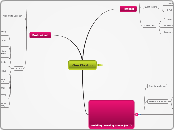Guy Claxton
Personal
Jobs
2008 - Present
Co-Director of the Centre for Real-World Learning (CrL)
Professor of the Learning Sciences @ teh University of Winchester
Qualifications
Double First in Natural Sciences
Cambridge
DPhil in Experimental Psychology
Oxford
Other Title
Fellow of the British Psychological Society
Felleow of the Royal Society of Arts
Academican of the Academy of the Social Sciences
Building Learning Power (BLP)
One Big Ambition
Building learning power is about helping young people to become better learners, both in school and out.
Three Core Beliefs
Belief 1
Beleif 2
Belief 3
Three Root Systems
Research into the nature of learning.
Geneticists
Psychologists
Developmental Psychologists
Neuroscientists
Sociocultural Researchers
Academic Philosiphers
Practitioner research and experience.
Encouraged to see for themselves
Write up and share experiments
Grounded by what busy teacher find:
Possible
Practical
Interesting
Commitment to a vision of education
Grows From
Real Demands
Risks
Opportunities of the 21st Century
Is
Appealing
Accessible
Professional
Consultant
Subject
Creativity and Learning
To
New Zealand Ministry of Education
The Royal Albert Hall
The Football Association
HM Treasury
South Australian Ministry of Education
Worldwide Speaker
Learnign
The Brain
Creativity
Author
◦New Kinds of Smart (written with Bill Lucas, Open University Press 2010)
What’s the Point of School? Rediscovering the Heart of Education (Oneworld 2008)
Creativity, Wisdom and Trusteeship: The Role of Education (edited with Howard Gardner and Anna Craft, Corwin Press 2007)
The Creative Thinking Plan (with Bill Lucas, BBC Books 2007)
The Wayward Mind: An Intimate History of the Unconscious (Little Brown 2005, Abacus 2006)
Building Learning Power: Helping Young People Become Better Learners (www.buildinglearningpower.co.uk, 2002)
The Heart of Buddhism (HarperCollins, 2002)
Wise Up: Learning to Live the Learning Life (Bloomsbury 1999, Network Continuum 2000)
Hare Brain, Tortoise Mind: Why Intelligence Increases When You Think Less (Fourth Estate 1997, HarperPerennial 1999)
